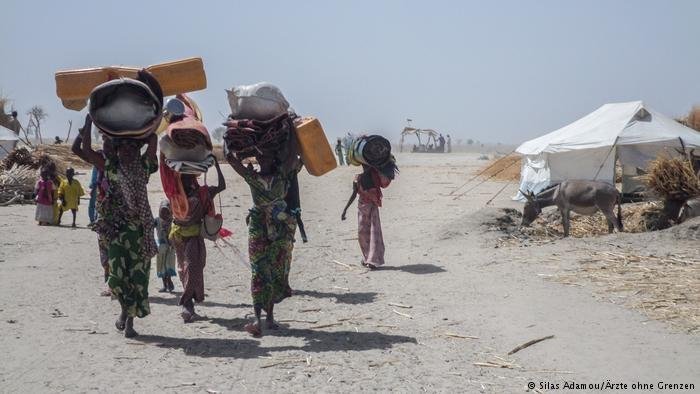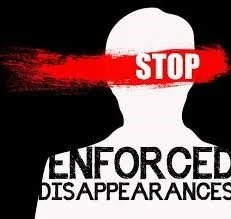
Our Blog
Categories
- Africa
- African Union
- Central Africa
- Citizenship laws
- Climate Change
- Competion Law
- Constitutional Court
- Constitutional Law
- Constitutional law
- Disability Rights
- Disability rights
- East Africa
- Environmental Law
- Gender Equality
- Governance
- Human Rights
- Human Rights Law
- ICJ Advisory Opinion
- Immigration Laws
- International Law
- Kenya
- Labour Law
- Mining Law
- Nigeria
- North Africa
- Political Rights
- Public International Law
- Public Law
- Right to Vote
- SADC Region
- Socio economic rights
- South Africa
- Southern Africa
- Uganda
- West Africa
- Year end anthology
- Zambia
A Commentary on the Provisions of the African Union Convention for the Protection and Assistance of Internally Displaced Persons in Africa
In this post, Dr. Omotunde Enigbokan explains the importance of creating a detailed legal commentary on the Kampala Convention to help African states and institutions better understand, interpret, and implement its provisions for protecting and assisting internally displaced persons, as well as improving accountability, monitoring, and practical application across the continent.
How the Designation of Nigeria as a Country of Particular Concern May Affect Asylum Seekers and Refugees
in this post, Victor Obinna Chukwuma examines the recent designation of Nigeria as a “Country of Particular Concern” by President Trump, particularly how this label may shape the experiences of Nigerian asylum seekers and refugees. While much of the public debate has centered on diplomatic and political implications, the article shifts the focus to the vulnerable individuals whose safety and legal standing may hinge on how this designation is interpreted and applied across international protection systems.
The Protocol is Now in Force: What Next for the Rights of Older Persons in Africa
In commemoration of the International Day of Older Persons, Dr. Lydia Chibwe reflects on the landmark entry into force of the Older Persons Protocol, the first legally binding regional instrument protecting the rights of older Africans. While its adoption marks historic progress, she underscores that the real challenge lies in implementation—through domestication, funding, monitoring, and tackling ageism. She further stresses that governments, civil society, and regional bodies must work together to ensure the Protocol moves beyond ratification and meaningfully transforms the lives of millions.
Spotlighting Female Genital Mutilation: An Insidious Human Rights Crisis
In this post, Amanda Quest examines the failure to eradicate female genital mutilation (FGM) in Africa. In doing so, she highlights the gap between legal and policy frameworks and lived experiences due to patriarchal values in several African countries, which persist despite FGM being outlawed. She argues that community-level interventions coupled with economic empowerment for women and girls are essential to overcome FGM in Africa.
Protecting Women in Conflict: Accelerating Action on the Maputo Protocol’s Commitments to Peace and Security
In this week’s post, Lydia and Sheryl highlight the urgent need to protect women and girls in conflict zones across Africa by accelerating the implementation of the Maputo Protocol’s peace and security commitments. The duo observes that despite strong legal frameworks, gender-based violence remains widespread, accountability is rare, and survivors are left unsupported. Drawing on recent conflicts in Cameroon, Somalia, DRC, Sudan, and more, Lydia and Sheryl reveal the troubling gap between promise and practice—and call on African governments and institutions to take concrete, gender-responsive action to ensure peace processes and post-conflict recovery truly serve the needs of women and girls.
Uganda’s Ongoing Enforced Disappearances are a Threat to Human Rights
In this week’s AML blog piece, Michael examines Uganda’s ongoing enforced disappearances, highlighting the abduction of opposition supporters and critics, often by unidentified state operatives. He observes that despite being party to international conventions and having strong constitutional protections, Uganda continues to violate fundamental rights with impunity. He further details legal efforts, ignored court orders, and the involvement of senior officials, arguing that the state must be held accountable for arbitrary arrests and illegal detentions.
Elections in Mozambique: Chronicles of a Crisis Foretold
In this post, Ester Stefanelli provides a detailed account of Mozambique's recent elections as well as the events that led to subsequent protests and disputes over the results. She argues that the Mozambican crisis underscores the limitations of formal elections, which can reflect incomplete constitutional transitions and may even hinder the process of democratic consolidation.
2024 Year End Anthology
The African Law Matters blog is pleased to announce that our 2024 Year End Anthology is now available online. This showcases the blog’s work and the editors’ selected publications from 2024 and can be accessed directly from this blog post.
Bwanya v Master: A Trampling of Precedent or an Evolution of Stare Decisis?
Drawing on her publication in CCR XIV, Prof. Fatima Osman examines the South African Constitutional Court's decision to depart from the precedent set in Volks v Robinson, where the court held that unmarried partners who chose not to marry could not claim maintenance under the Maintenance of Surviving Spouses Act (MSSA). In Bwanya, the court declared provisions of the Intestate Succession Act (ISA) and MSSA unconstitutional insofar as they excluded life partners who had undertaken reciprocal duties of support.
Poverty as a Ground in South Africa and India
Ahead of her upcoming publication in CCR XIV, Dr Rishika Sahgal analyses and critiques two cases decided by the apex courts in India and South Africa in 2022, Janhit Abhiyan and Social Justice Coalition. These cases reveal that even when poverty is recognised as a ground within equality law, several tensions or barriers to achieving substantive equality for the impoverished may arise.
Why a scope clause in the binding treaty on business and human rights is unnecessary
Ahead of the 10th session of negotiations of the Intergovernmental Working Group on a legally binding instrument to regulate, in international human rights law, the activities of transnational corporations and other business enterprises, David Bilchitz argues that a scope clause is unnecessary and likely to exacerbate divisions.
Ghana Declares that Bolt Drivers are Independent Contractors: Five Reasons Justice Noah Adade v Bolt Ghana Ltd Deserves a Different Verdict
In this article, Joshua Kyeremateng and Theophilus Edwin Coleman offer five reasons why the circuit court in Ghana should have arrived at a different conclusion on the employment status of gig workers in Justice Noah Adade v. Bolt Ghana Limited and Another.
Bark Without Bite? Considering and Clarifying the SAHRC’s Competence
In this post, Nicholas Herd examines the Supreme Court of Appeal (SCA)'s judgment in SAHRC v Agro Data, where the court unanimously rejected the South African Human Rights Commission's (SAHRC) claim that it possesses the authority to issue binding directives. He also explores the Commission's prospects of success in its appeal to the Constitutional Court, challenging the SCA's decision.
The African Disability Protocol: Enhancing Disability Rights Protection in Africa
In this post , Dianah explores the adoption and significance of the African Disability Protocol, which addresses the unique challenges faced by persons with disabilities in Africa. She highlights how the Protocol complements the Convention on the Rights of Persons with Disabilities by incorporating African cultural values, addressing harmful practices, and expanding rights specific to the region. She also underscores the need for universal ratification and effective domestic implementation to ensure the rights and freedoms of persons with disabilities are fully realized across the continent.
Gen-Z Demonstrations and Kenya’sConstitutionalism
In this post, Duncan Okubasa observes the Gen-Z protests in Kenya as a reaction to increased taxes on essential goods and broader discontent with the government. He highlights how the protests exposed significant issues within Kenya’s constitutional framework, including executive dominance over the legislature, disregard for political rights, and co-optation of opposition figures. Finally, he observes that despite these challenges, the protests may inspire progress toward the democratic ideals in Kenya’s 2010 Constitution through increased civic engagement and institutional accountability.
- Africa
- BBI judgment
- Children's rights
- Climate Change
- Constitutional Court
- Constitutional Law
- Constitutional reform
- Democracy
- Election series
- Elections
- Environmental Justice
- Equality
- Human Rights
- International Law
- Kenya
- LGBTQ+ Rights
- Migration
- Namibia
- Nigeria
- Political Rights
- Public participation
- Refugee and migration series
- Refugees
- Socio-economic rights
- South Africa
- South African Constitution
- Women in Africa
- Women's Month
- Women's rights
- World Congress
Submissions
We welcome unsolicited submissions covering current legal developments in constitutional law, fundamental rights law, public law, international law and related fields.
















